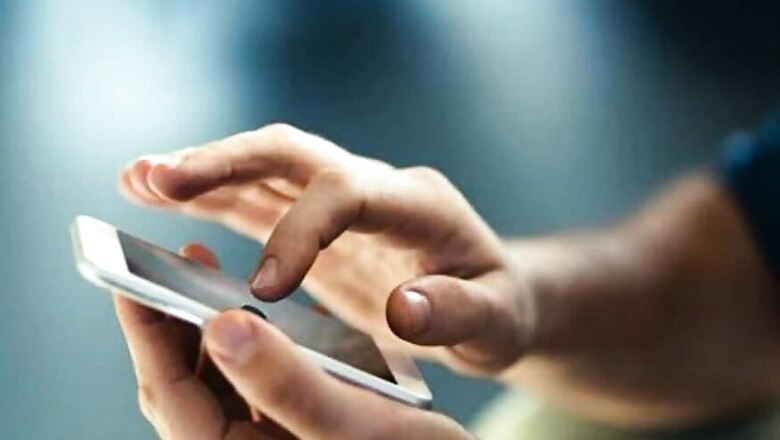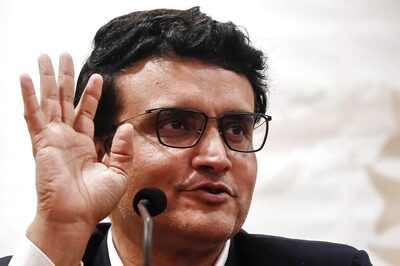
views
As the EU's economy reels from virus lockdowns, Brussels unveiled a proposed roadmap on Wednesday to ease restrictions on life and businesses, relying in large part on smartphone tracking apps. That technology aims to spot localised COVID-19 outbreaks in real-time. Already many individual European governments are on the verge of rolling out their own tracking apps. But the European Commission is concerned those go-it-alone initiatives will provide incompatible data sets, useless for compiling a whole picture across the single market where people and goods are meant to move freely.
It is also worried these apps could fall foul of strong EU data privacy rules and Europeans' deep-seated wariness of technological prying. "The aim is to get the single market back on track so that it can work properly," Commission chief Ursula von der Leyen told a video link news conference as she unveiled the 16-page roadmap to phasing out lockdowns that have brought life to a standstill in many countries.
Apps already appearing
The document puts data collection and contact tracing at the top of its recommended measures, above expanding testing, reinforcing healthcare systems and providing more protective gear. But it said the use of any apps should be "voluntary" and comply with personal data protection rules. "Tracing close proximity between mobile devices should be allowed only on an anonymous and aggregated basis, without any tracking of citizens, and names of possibly infected persons should not be disclosed to other users," it said.
An EU official giving more details to journalists later called such apps "very useful to prevent localised flare-ups" of the virus. But, he warned, "they will only work if citizens have full trust in those apps -- this is very important to stress". The Czech Republic launched a nationwide contact-tracing app this week which tracks citizens' phones and bank cards. Hard-hit Italy is close behind, last week having selected a company to bring out a contact-tracing app.
France is in the process of setting up its own but parliament will have to weigh up considerable public suspicion of tracking apps when it discusses it at the end of the month. Of other EU member states, Netherlands, which also has privacy concerns, is studying it while Portugal is holding off for the moment, saying it wants to see how it works in other countries. Non-EU members are also looking at apps as part of the solution to ending crippling restrictions.
Britain, for instance, announced on Sunday it will soon launch an app that would automatically alert people who have been close to someone who comes down with COVID-19 symptoms. Iceland launched its app in early April, with more than a third of its 360,000 inhabitants downloading it by last week. Switzerland says it plans to join a European initiative, and will likely discuss such a step in a government meeting on Thursday.
Call for scrutiny
The technology side of the equation is likely to get a big boost from last week's announcement from Google and Apple that they were joining together to develop a smartphone tracking tool. But both US tech titans have run up against EU regulations in the past and it is uncertain if their product would be seen as viable against European data privacy laws.
Julian King, Britain's last EU commissioner who stepped down from his role in charge of the security union portfolio in the previous executive in 2019, said on Wednesday that "such advanced surveillance technology can be highly invasive". In an op-ed published by the online outlet Politico, he said: "The trouble is that aggregated data may not be enough to move us out of lockdown. "That will likely also require the use of more granular information on individual cases so that health authorities can trace our contacts."
He called for strong safeguards in the use of such apps, including making sure they stopped being used when the coronavirus crisis had passed and were, "crucially, subject to independent scrutiny". "It's difficult to see, frankly, why apps should hold on to data for years, as some have suggested," he said.


















Comments
0 comment